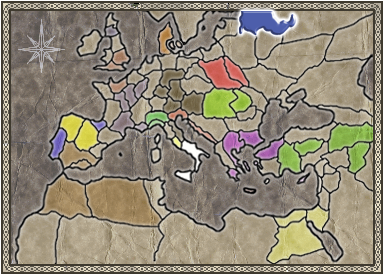
Castles have better defensive capabilities and have access to a larger selection of soldiers, but generate less income, cannot train as many priests as cities, and have no access to higher civilian technologies. Unlike previous Total War titles, there are two kinds of settlements, each with different advantages and disadvantages: cities and castles. The long campaign requires the player to control at least 45 territories and one or two significant cities, which are faction specific, such as Jerusalem, Granada, Rome or Constantinople.Įach faction controls a number of settlements, and must conquer others in order to continue growing. The short campaign requires the player to defeat one or two enemy factions (for example, England must defeat its historical enemies Scotland and France) and control at least 15-20 settlements. The goal of the campaign depends on which type of campaign is played. When an army engages another army, the player can choose to fight the battle personally, in the battle mode, or automatically calculate the outcome. During the player's turn, armies, fleets, and agents can be moved on the map. Gameplay consists of controlling the faction's military, economic, and social systems via a large campaign map. The campaign allows the player to assume control of a faction of the time period, and build a civilization, both economically and militarily in order to conquer other factions. Battles are also featured in the campaign. Battles can be played in multiplayer, in user-defined scenarios, or in historical scenarios which simulate real battles such as the Battle of Arsuf or the Battle of Agincourt. Similar to previous titles of the Total War series, the game consists of two modes of play: battles and single-player campaign.

Medieval II is built on the code base of Rome: Total War. However, unlike its predecessor, the timeframe stretches into the era of the historical discovery of the New World, and simulates the discovery and conquest of the Americas. Like the original Medieval, it focuses on medieval warfare, religion, and politics in Europe, North Africa, and the Middle East.

Medieval II: Total War, the indirect sequel to 2002's Medieval: Total War and the fourth game in the critically acclaimed Total War series from The Creative Assembly, is a game of turn-based strategic rounds and real-time tactically-oriented battles. 1.8 GHz Processor 512 MB RAM (1 GB recommended) 11 GB uncompressed free Hard disk space 128 MB Graphics card 100% DirectX® 9.0c compatible 16-bit Sound card 8x Speed DVD-ROM drive 2K/


 0 kommentar(er)
0 kommentar(er)
